You take your senior canine companion on their daily constitutional when suddenly they stop, sniff the ground, and take a big bite of dirt. As you look bewildered, you wonder why is my old dog eating dirt.
This odd behaviour may seem harmless but could signal boredom, stress, nutritional deficiencies, or an underlying medical issue.
Left unchecked, chronic dirt eating poses risks like intestinal blockages, dental damage, ingesting toxins, and parasites.
As our dogs age, changes in behaviour, like suddenly eating dirt, warrant attention. With some detective work and preventative measures, we can get to the bottom of this disorder known as pica and protect our senior pups.
Why Is My Old Dog Eating Dirt Suddenly?
Veterinarians group non-food eating behaviours like geophagia (eating dirt or soil) under the term “pica.” Various factors can trigger pica in ageing dogs, including:
Boredom or Stress
Many dogs are left home alone for long stretches and experience boredom or separation anxiety. They may pace, drool, pant, tremble, or become destructive. Eating dirt is another stress-relieving tactic – albeit an unhealthy one.
As pack animals, dogs crave stimulation and companionship. Retirement and limited mobility mean senior pups spend more time alone. Solo walks are no longer an option either.
Without enough activity or mental challenges, older dogs are at high risk for developing unhealthy coping behaviours like dirt eating from sheer boredom.
Nutritional Imbalances
An unbalanced diet deficient in essential nutrients could lead your old dog to dirt. Iron, sodium, calcium and other minerals occur naturally in soil.
If your ageing pup’s food doesn’t provide complete, balanced nutrition, they may eat dirt to restore deficiencies.
Spotting a nutritional imbalance early lets you correct your diet before dirt eating becomes a habit. Telltale signs include dull coat, low energy, unstable gait, and irregular bowel movements.
Underlying Health Issue
Eating dirt may also indicate a more serious underlying condition, including:
- Anaemia – Low red blood cell counts
- Gastrointestinal disease – Inflammation and irritation
- Liver dysfunction – Impaired blood cleansing
- Kidney disease – Toxins build up in the blood
Because digestion slows with age, your dog struggles to absorb nutrients properly. It triggers dirt eating to compensate.
Your vet can test blood counts, bile acids, kidney values, faecal samples, etc., to pinpoint whether illness causes your old dog’s pica. Treating the condition should end dirt-eating.
Dangers of Dirt Eating in Elderly Dogs
Left unrestrained, chronic dirt eating poses many risks to your senior doggo’s health, including:
Gastrointestinal Blockages
Dirt with embedded sticks, rocks or other debris can cause partial or complete intestinal blockages requiring surgery. Vomiting, diarrhoea, loss of appetite and abdominal pain are telltale signs.
Dental Damage
They were eating dirt with rocks or hard debris, which risks cracking teeth or damaging gums. Senior dogs already prone to periodontal disease don’t need extra dental trauma.
Toxin Ingestion
Your yard or neighbourhood ground may contain pesticides, herbicides, fertilizers and other lawn treatments. Eating tainted dirt could cause toxicity, requiring emergency decontamination.
Parasites
Dirt harbours parasites like worms, flukes and giardia. Transmission occurs by faecal contamination. A heavy parasite load leads to diarrhoea, vomiting, malnutrition and weight loss.
Respiratory Distress
Inhaled dirt particles can lead to pneumonia or other upper respiratory infections in elderly dogs. Coughing, laboured breathing and nasal discharge signal trouble.
With an ageing immune system, your senior dog faces elevated risks of lasting complications from dirt-eating. It’s critical to curb this behaviour and uncover any underlying triggers.
Stopping Dirt Eating in Older Dogs
Nipping a late-onset pica habit in the bud is key before it becomes ingrained behaviour. Here’s how:
Supervise Time Outdoors
When your elderly dog is outside off-leash, watch them like a hawk. At the first sign of mouthing dirt, rush over with a firm “No!” Lead them away and offer a chew toy instead—lavish praise for leaving the dirt alone.
More Exercise and Play
Bump up daily walks and interactive play to tire out your old pup. Food puzzle toys also stimulate ageing minds. The goal is to prevent boredom by meeting activity needs.
Check Diet Quality
Research whether your senior’s current food provides complete, balanced nutrition. Consult your vet on switching brands or incorporating supplements to resolve nutritional shortfalls.
Treat Underlying Conditions
If illness causes pica, properly managing the disease often curtails dirt-eating. Follow prescribed medication routines—schedule follow-ups to ensure adequate control.
Restrict Access
As a last resort, limit your elderly dog’s solo wanderings outside by keeping them leashed or inside. It reduces dirt-eating opportunities while you address the root triggers.
You can break the dirt-eating habit in older dogs with patience and some adjustments. Seek veterinary help if pica persists despite your best efforts.
When to Call the Vet About Dirt Eating
Occasional dirt eating isn’t cause for alarm on its own. But if it becomes a regular occurrence or accompanies other symptoms, seek veterinary help. Red flags include:
- Refusing food
- Lethargy
- Weight loss
- Foul breath
- Gastrointestinal issues – vomiting, diarrhoea, constipation
- Hacking cough
- Difficulty breathing
- Neurological problems – seizures, stumbling
Any significant change in behaviour or health in senior dogs deserves investigation. Pica can indicate disease or deficiencies requiring prompt treatment.
FAQs: Geriatric Dogs Eating Dirt
Do ageing pets need specialized nutrition? Yep! Senior dog foods are lower calorie, highly digestible and packed with joint support. It balances changing nutritional needs.
How often should geriatric dogs eat?
Most do fine on two or three small meals. Upping feedings compensate for slowed digestion but prevent weight gain.
My old dog eats everything outside. Normal? It’s common but unhealthy. Restrict access, supervise outings, and stimulate your elderly pup more to curb pica.
Do I need to deworm my senior dog?
Absolutely! Monthly preventatives combat dirt-borne parasites. Puppies and seniors are most vulnerable to infestations.
What should I feed an elderly, underweight dog?
Consult your vet first. Getting calories in small feedings is key. Canned food is very palatable and nutrient-dense for picky old pups.
Conclusion
Catching your senior companion snacking on soil understandably raises concerns! While eating dirt seldom leads to emergencies, it can indicate underlying disease or signal the start of hazardous obsessive pica.
Pay attention to any pattern of dirt eating in your elderly dog. Chronic pica tends to intensify over time if root causes go unaddressed.
Tackle boredom, anxiety, nutritional shortfalls, or health conditions before gastrointestinal, dental or respiratory risks arise.
Most older dirt lovers can kick the habit with attentive supervision and meeting activity needs. Be patient: senior dogs face many adjustments, like limited mobility and isolation.
Support your gray-muzzled pack member by consulting your veterinarian if dirt cravings don’t resolve or worsen. Growing old with grace and dignity takes work, but your loyal friend is worth it!
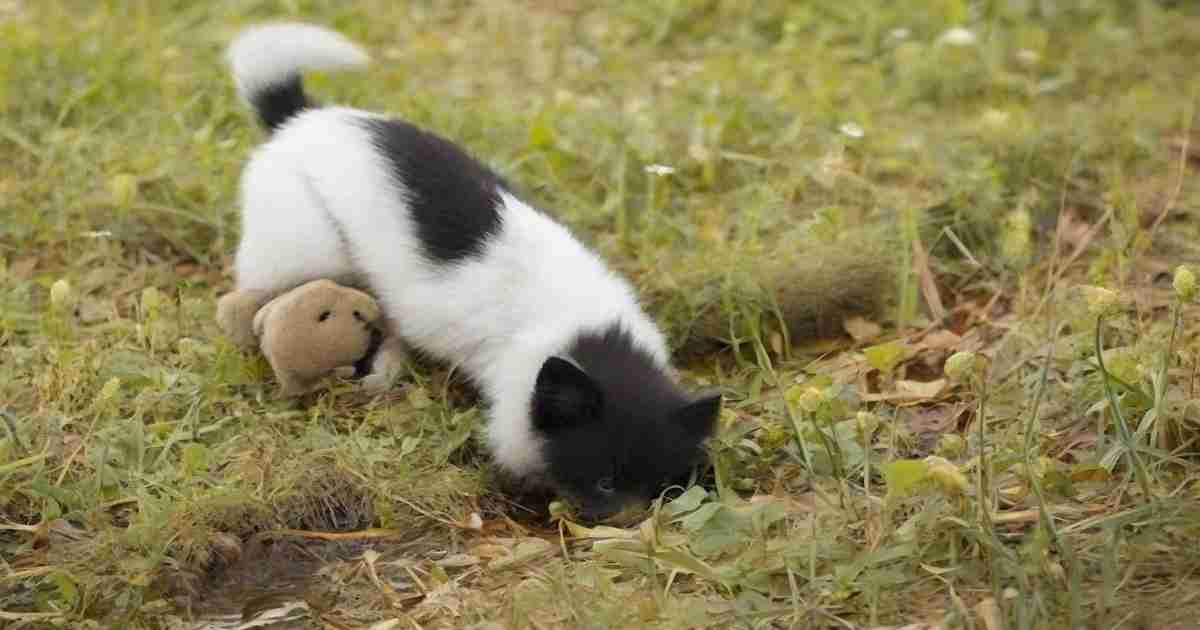
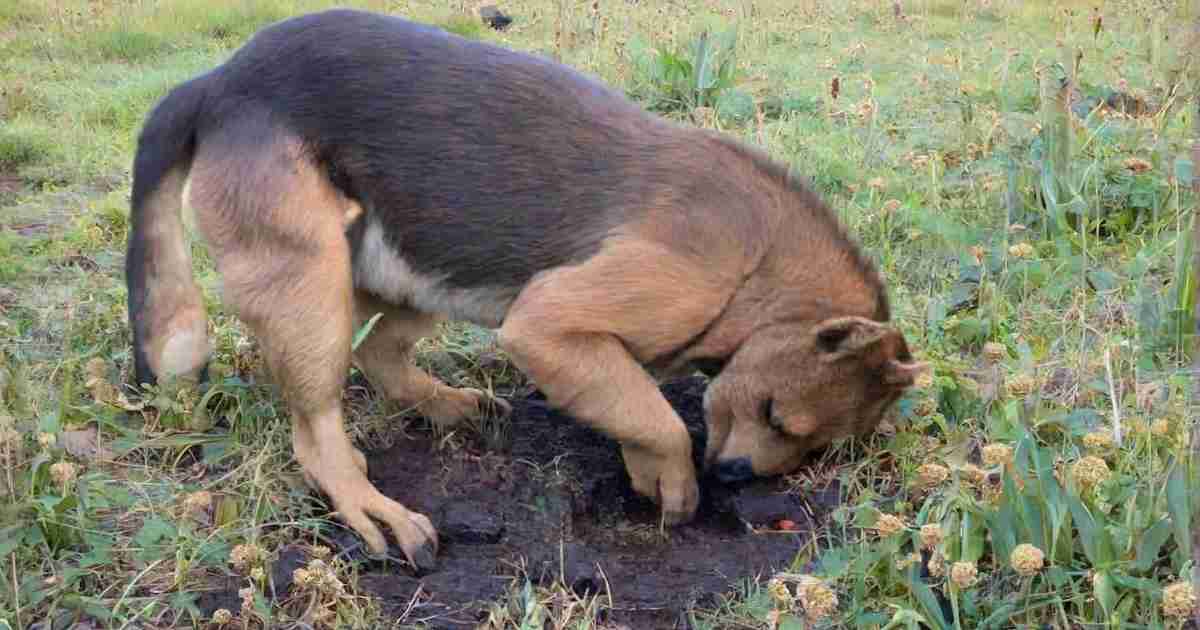
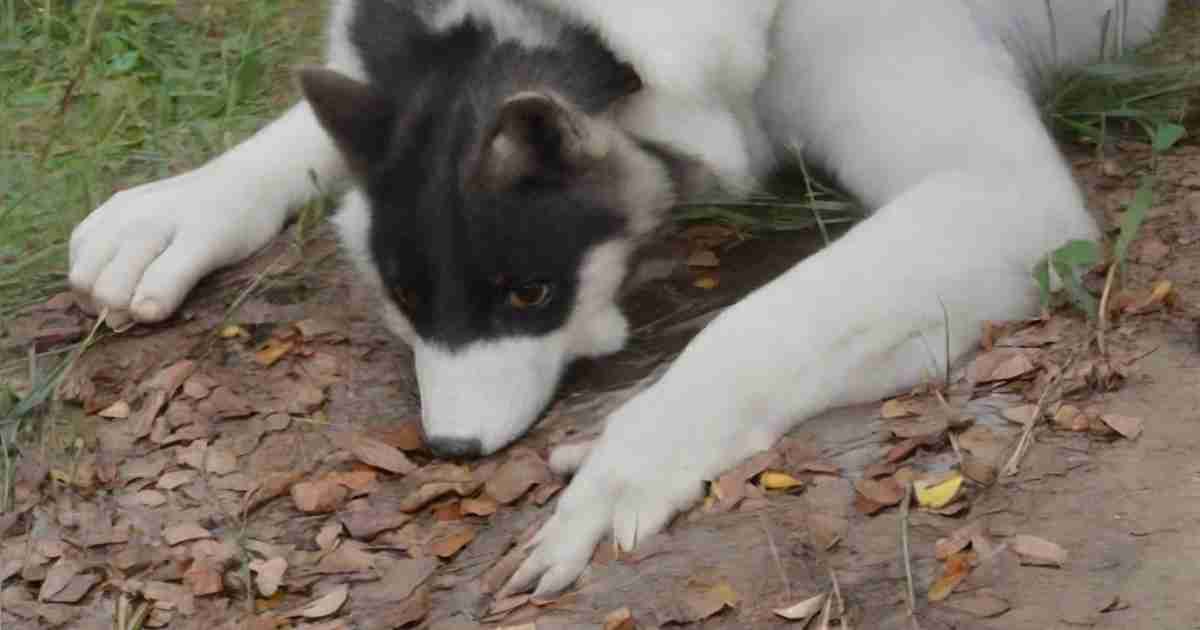
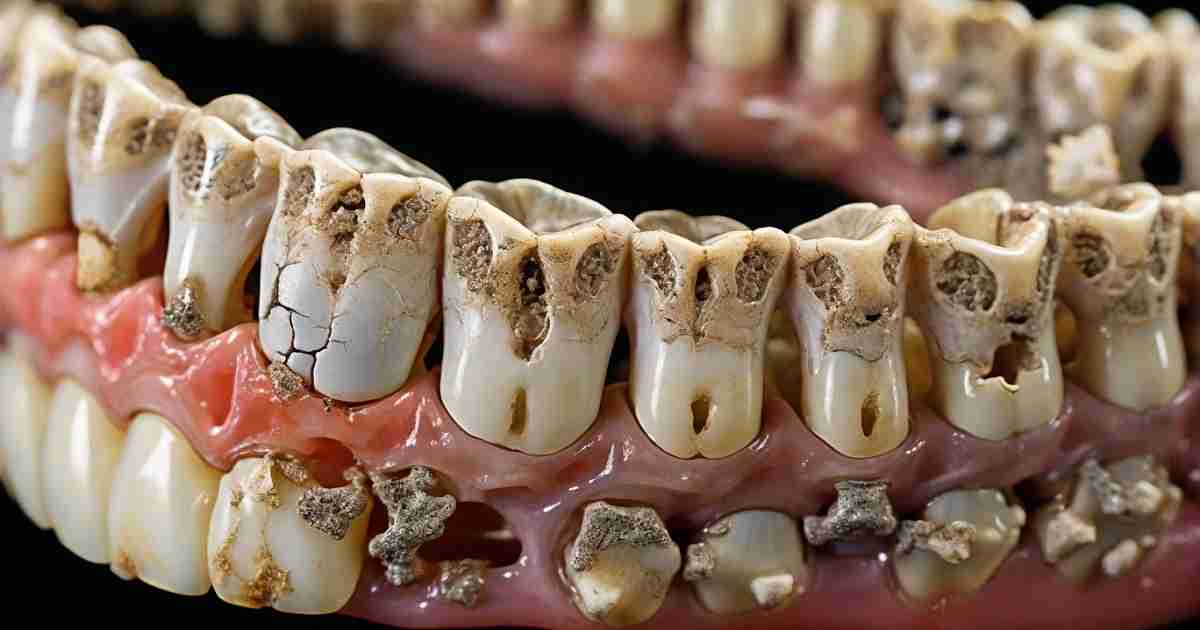
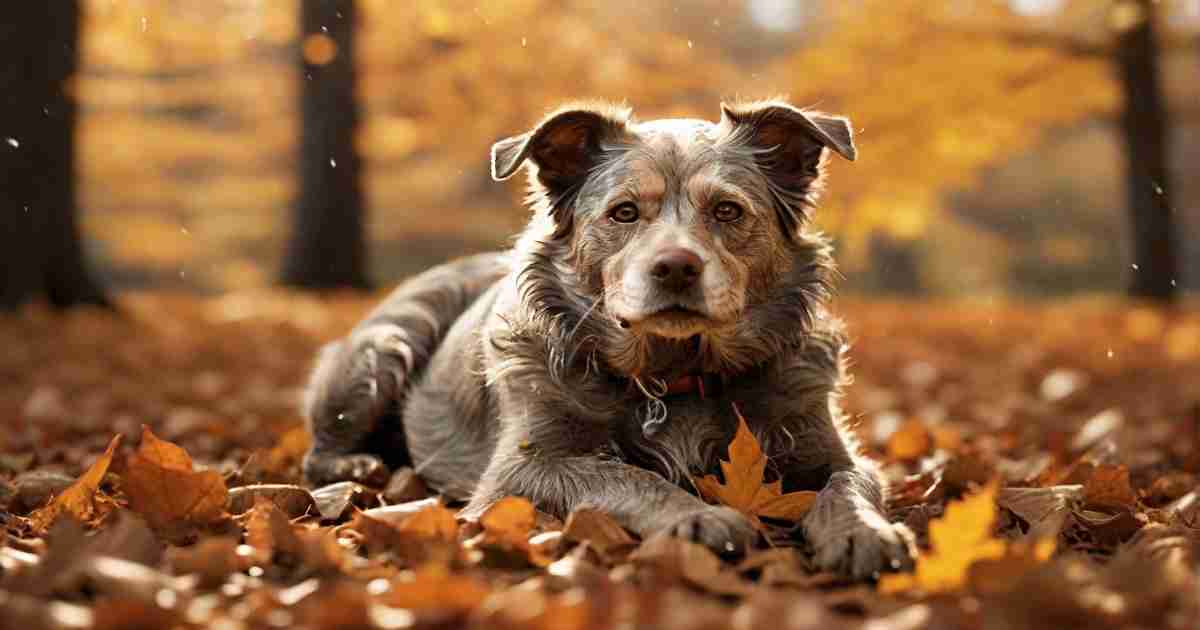
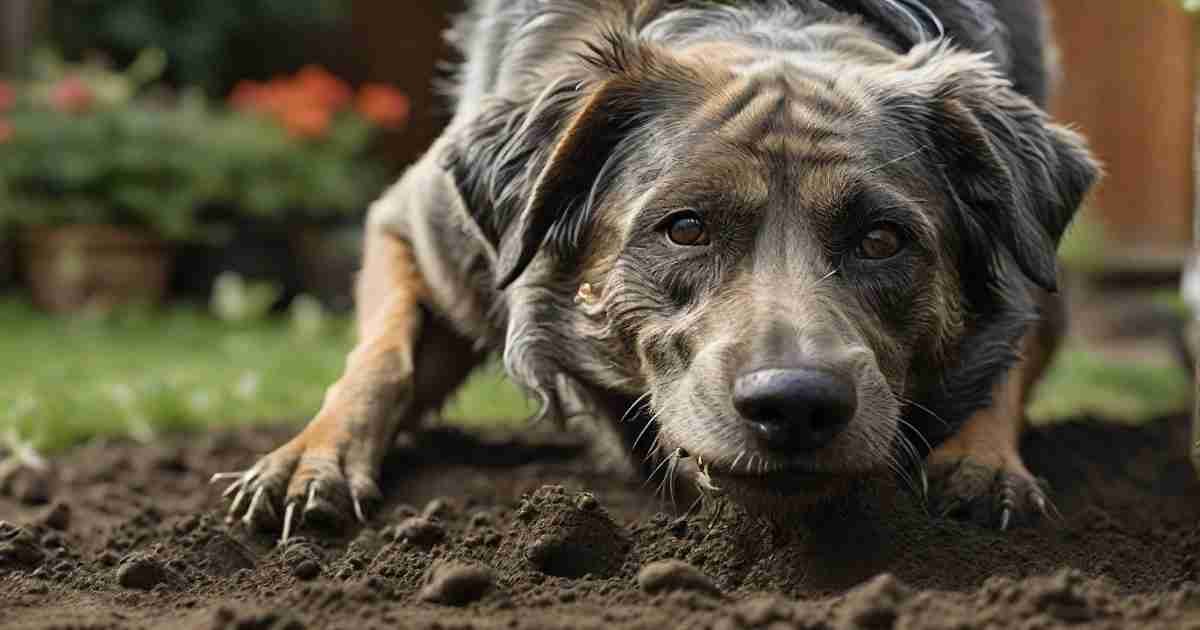


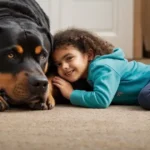
2 thoughts on “Why Is My Old Dog Eating Dirt Suddenly?”